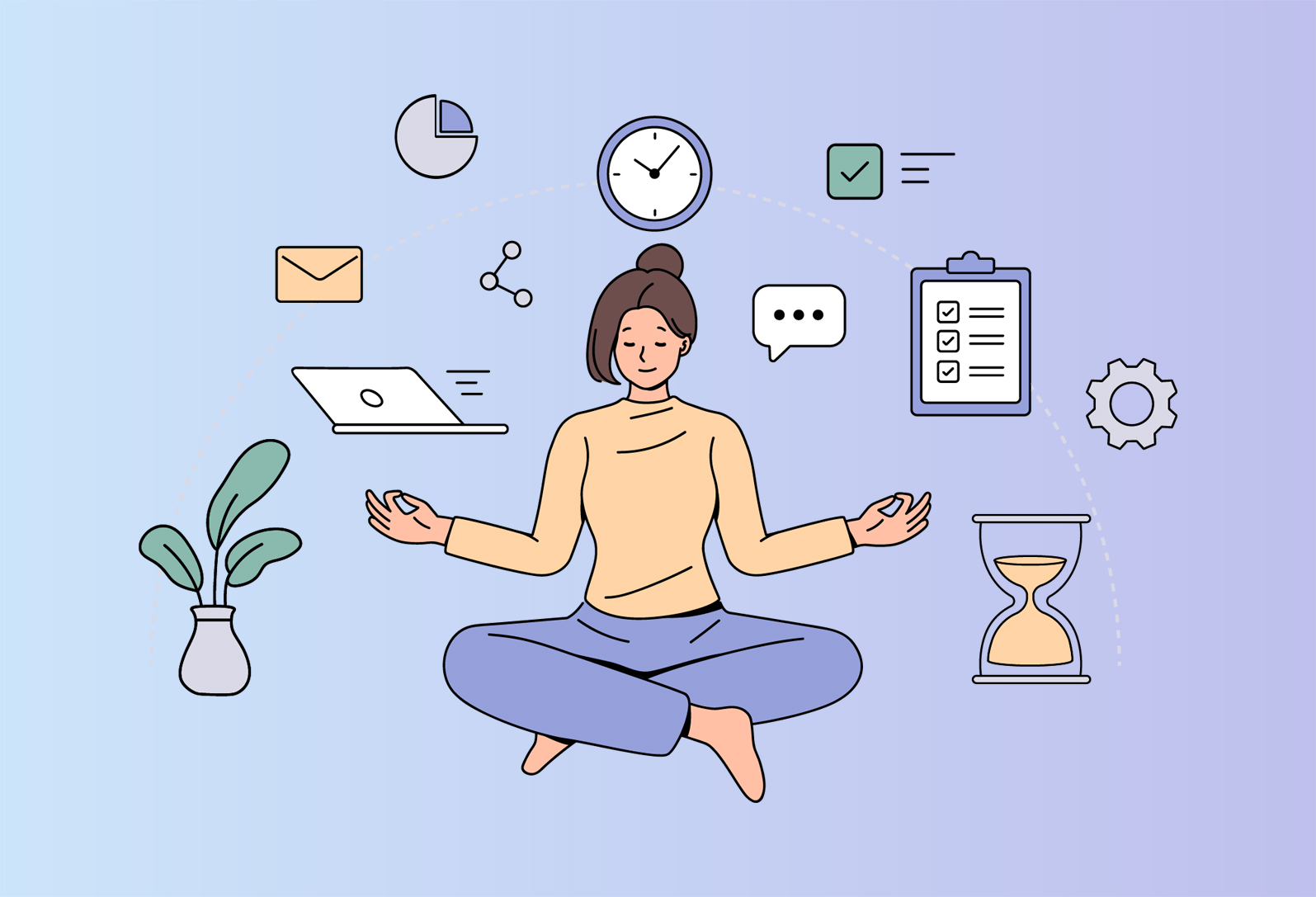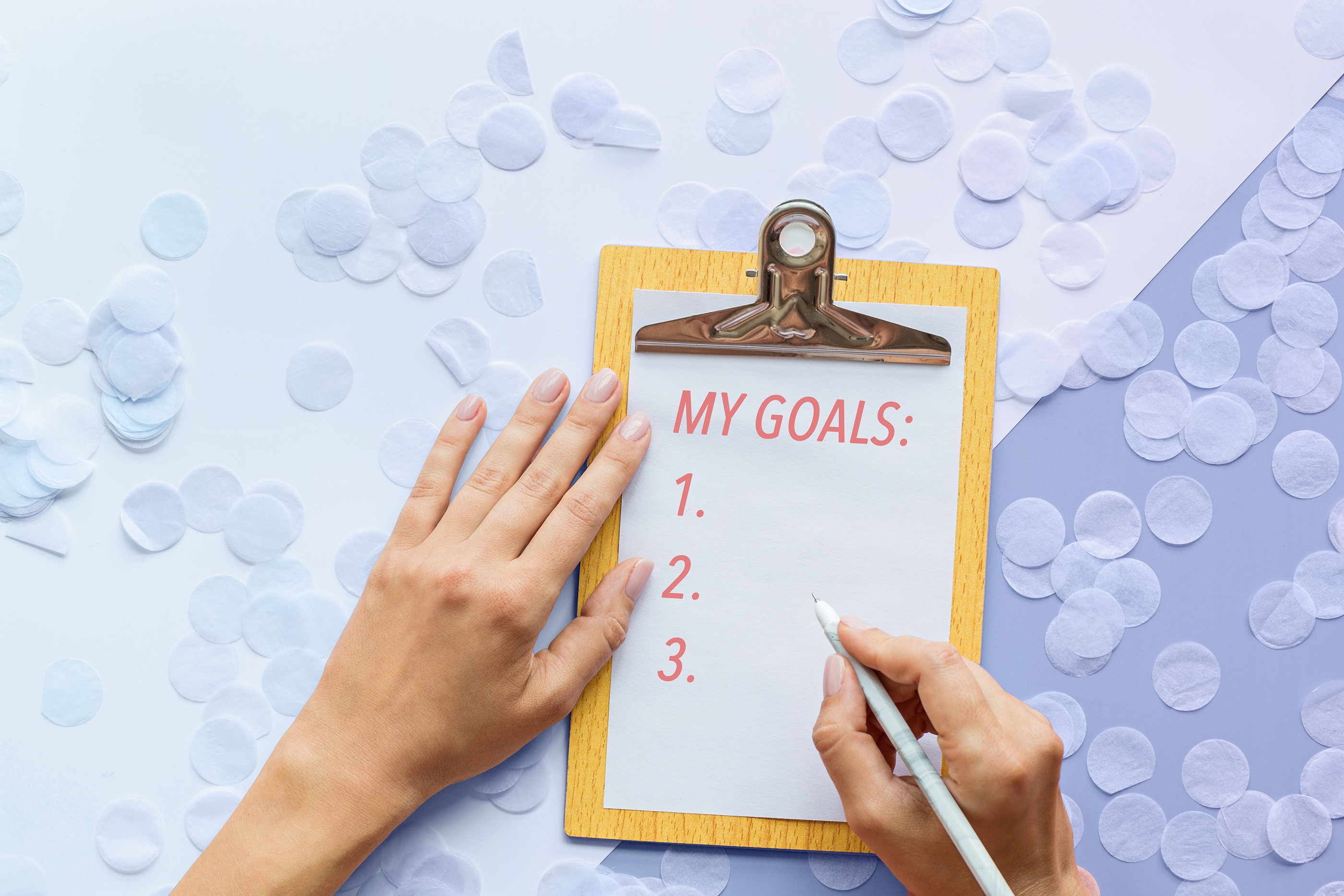
Rylee Lueken
January 15, 2026
•
7 min read

When it comes to mental health, we often look for big answers—life overhauls, grand goals, instant results. But the real change and power lies in tiny steps, done consistently. Small daily habits, like getting outside for 10 minutes or expressing gratitude, can ripple into lasting mental wellness.
Science backs it up: tiny, consistent habits can make a huge difference. This guide breaks down how those small steps shape mental wellness—and how a little support along the way (like smart journaling or gentle reminders) can help them stick.
One effective way to care for your mental health is to start with what’s doable. As Healthline advises, “Start small and build gradually... the first few steps should be ones that you know you can achieve.” This incremental approach wires your brain for bigger change, reducing stress and building resilience over time.
Even better: keeping track of what works—whether it’s a short morning walk or a gratitude note—helps those habits grow stronger over time. Apps like Brightn make it easy to stay aware of what’s lifting your mood without overthinking it.
The NHS defines five pillars that support mental wellness. Think of them as building blocks—and you only need to start with one to get a foundation laid.
Strong relationships are essential for mental wellbeing. Staying connected helps build a sense of belonging and reduces loneliness. A quick voice memo or funny meme sent to a friend counts more than you think.
🔹 Try this: Text someone “just because” today.
Bonus tip: A quick reflection after a positive connection can help you appreciate it more—and repeat it.
According to the NHS, being active is not only great for your physical health... evidence also shows it can improve your mental wellbeing. Moral of the story, movement boosts endorphins and reduces anxiety—even if it’s just stretching between classes or walking around the block.
🔹 Try this: Do 10 jumping jacks or a slow stretch break during your screen time.
You might notice: Even short bursts of movement can shift your energy. Make it a pattern, not a one-off.

Learning boosts confidence and gives you a sense of progress. This doesn’t mean formal education—it could be learning a new recipe or exploring a creative hobby.
🔹 Try this: Watch a short how-to video or read an article that interests you.
Keep track of what excites you—it helps turn curiosity into a habit.
Kindness is contagious, and giving doesn’t have to be big to be meaningful.
🔹 Try this: Leave a positive comment, hold the door, or compliment someone’s outfit.
Reflecting on small moments of kindness can make you feel more connected and grounded.
Staying present (even for a few minutes) helps reduce stress and increase clarity.
🔹 Try this: Pause and name three things you can see, hear, and feel right now.
Tools like mindful breathing guides or reflective journaling can help build this habit over time.
Here are more tiny changes you can make—backed by science, and easy to start today:
Sleep Regularity: The National Institute of Mental Health recommends waking up and going to sleep at the same time every day, and turning your bedroom into a quiet, relaxing, clutter-free space. This helps regulate mood and energy.
🔹 Try this: Keep a simple bedtime routine and notice how you feel after a few nights of consistency.
Nutrition & Hydration: What you eat and drink impacts your focus, mood, and energy. NIMH advises: Eat healthy, regular meals and stay hydrated. A balanced diet and plenty of water can improve your energy and focus throughout the day.
🔹 Try this: Add one glass of water or a fruit/veggie to your day—you don’t need to overhaul your diet to start feeling better.
Limit Caffeine & Alcohol: Reducing intake (especially later in the day) can help with sleep and emotional balance.
🔹 Try this: Try swapping one coffee or drink for water and see how your body responds.
Journaling: Writing down your thoughts can reduce overwhelm and help you process emotions.
🔹 Try this: Not sure what to write? Prompts or structured questions (like those in Brightn) can make it easier to start.
Get Outside: According to MHA, spending time in nature can increase energy levels, reduce depression, and boost well-being.
🔹 Try this: Step out for some fresh air, notice the sky, or take a lap around the block. It counts.

Consistency beats intensity. Set the bar low—like “1 minute of deep breathing” instead of “30 minutes of meditation.”
Healthline suggests using SMART goals—Specific, Measurable, Achievable, Relevant, Time‑bound—and notes that tracking your progress can help hold you accountable and motivate you.
Reflecting on your habits over time (which tools like Brightn support with mood insights and gentle nudges) makes it easier to see what’s helping—and what might need a tweak.
Q: How long until a habit takes hold?
A: It varies, but consistency creates change. Using Brightn’s reminders and mood tracking helps build awareness and encourage persistence.
Q: Can one habit really make a difference?
A: Yes. As MHA emphasizes that even small things can make a big difference. The key is repeating what works.
Q: What if I miss a day?
A: No big deal. The goal isn’t perfection—it’s progress. Miss a step? Just start again the next day.
Q: Which habit should I start with?
A: Start with something easy and meaningful. As Healthline suggests, choose a habit you know you can achieve.
Q: How do I stay motivated?
A: Track your progress—even informally. Noticing how you feel after a habit makes you more likely to keep it up.

With features built around behavioral science and personalized AI, Brightn offers unique benefits that make habit-building effortless:
These features make building healthy habits feel supported—and grounded in science.
Building healthy habits doesn’t happen overnight—but micro‑changes can transform your mental wellness. With simple, consistent actions guided and tracked, the journey becomes clear, measurable, and supported.
Start today with one tiny habit: whether it’s journaling, mindful breathing, a short walk, or expressing gratitude. Use Brightn to plan, track, and reflect—and let the app's insights help you see how small steps can lead to big change.

✅ 5 Proven Tips for Mental Wellness: How to Create a Routine That Actually Sticks
Learn how to turn tiny habits into lasting routines using science-backed strategies that boost your mental wellness every day.
📱 Mental Wellness Apps That Integrate with Your Daily Life: Your Complete Evidence-Based Guide
See how modern mental wellness apps like Brightn are making it easier than ever to weave healthy habits into your lifestyle—no overwhelm required.
📝 How to Use Journaling for Self-Discovery: Transform Your Mental Wellness with Brightn
Start building a habit of reflection with this guide to using journaling for clarity, insight, and emotional balance.
🌈 Brightn Your Day: 20 Fresh Ways to Boost Your Mood
Feeling stuck? Browse this quick list of mood-boosting ideas—perfect for creating micro-habits that brighten your mental state.